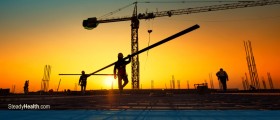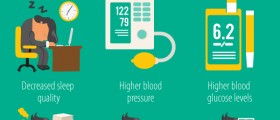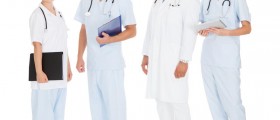
Common sense notions about good and healthy jobs often consider a secure job one that pays well. Jobs are there to pay bills, groceries, keep people under a roof, and raise children – all of the necessary material needs. Without them, it’s hard to stay healthy.
Job Benefits
Recent studies show that this link between the job and health is more than important. Unemployment is a cause of stigmatization, stress and social segregation, it may also take away a couple of years of one’s life because unemployed people, according to this research, live fewer years and have higher rates of cardiovascular disease, hypertension, and depression or suicide.
There is also a statistical relationship between income and health. People with average annually family incomes of $15,000 to $20,000 are at a tripled risk to die early compared to those with family incomes greater than $70,000. People with lower earnings are at larger risk than people with higher earnings to have low birth weight babies, to suffer injuries, violence, get cancer, and to suffer chronic health conditions.
Non-monetary benefits of employment include paid sick leaves, vaccinations and health insurance for working-age adults. People lacking with health insurance often forgo timely health care and suffer more severe illness. It is not unlikely for them to die prematurely.
Job risks
Some jobs might be fatal and bring many injuries to workers. Statistics show that truck drivers, laborers, janitors and cleaners, carpenters, nursing aides, orderlies, and attendants are the occupations with the most accidental injuries and illnesses in California.
Another common danger at the workplace is “stress”. Stress may affect occurrence of many diseases such as infections, high blood pressure, coronary diseases and depression. The level to which worker has the ability to control the pace of their work seems to be crucial to work stress management. Studies show that workers who suffered high stress and had low levels of workspace control, were 50 percent more likely to suffer heart attacks.
Shift work may also affect negatively one’s health. It is connected to smoking, drinking, a poor diet, digestive problems, and cardiovascular disease. Women working night shifts may suffer fetal loss during pregnancy. On the other hand, flexible working hours or share jobs, may give workers greater feeling of control over the work process, and thus affect health positively.
A healthy balance
So-called blue collar jobs, which traditionally provided less educated personnel with safe service, health insurance, vacation and pension benefits, have been rapidly vanishing. Instead of these jobs, there are jobs that barely pay a living wage, with no health insurance, no opportunity for workers to control the work pace and are extremely stressful.
Policymakers should do their best to advance the health of work situation, above all for marginalized groups. Some of the measures are:Setting a minimum wage that actually meets material needs for livingRecruiting and protecting industry which often offers jobs with higher wages, standard shifts, sick leave and possibility for further education Establishing minimum standard benefits for workers: health insurance, sick leave, vacation benefits…Ensuring that workers in high risk occupations get training and protective equipmentImproving workplace health and safety while focusing on both material and psycho-social aspects of workplace.
















Your thoughts on this
Loading...